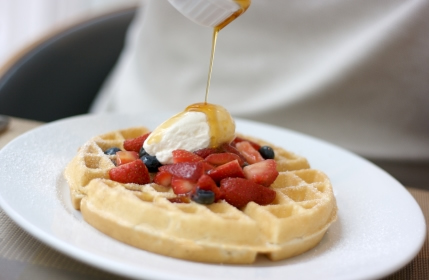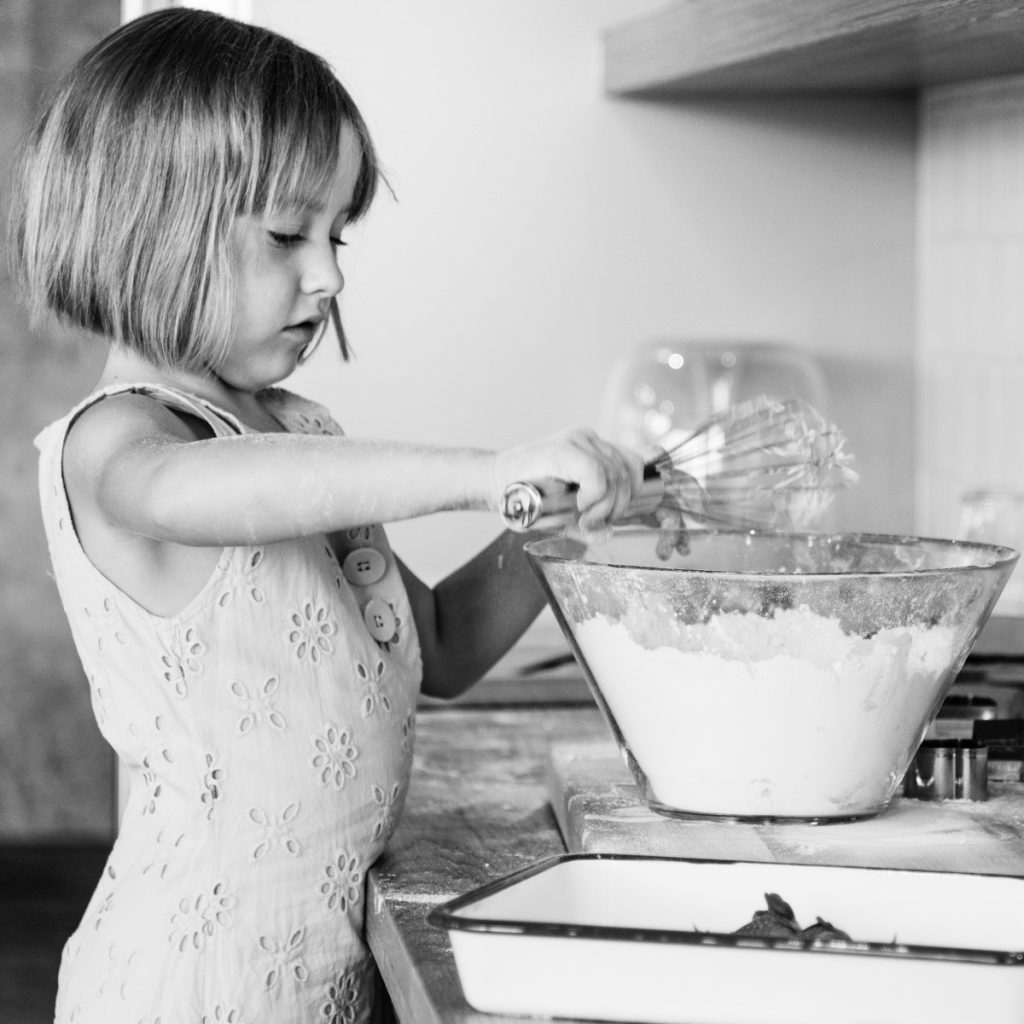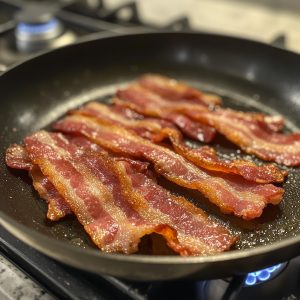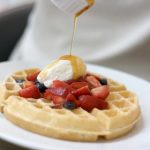How Cooking Can Help Improve Your Child’s Basic Intellect
Cooking is more than just a fun activity for kids; it’s a powerful tool for intellectual development. When children step into the kitchen, they engage in a hands-on learning experience that stimulates their minds in various ways.
From following a recipe to measuring ingredients, cooking challenges kids to think critically, solve problems, and apply mathematical concepts. The cooking process also enhances memory and concentration, as they must remember steps, follow instructions, and stay focused to create a successful dish.
Beyond the basics, cooking introduces children to scientific principles, such as how heat affects food or how ingredients interact, sparking their curiosity about the world around them. Reading recipes and discussing culinary creations also exposes them to new vocabulary and improves their language skills.
Additionally, cooking encourages creativity and innovation, allowing kids to experiment with flavors and presentations, which nurtures their ability to think outside the box. By exploring different cuisines, children gain cultural awareness and historical knowledge, broadening their understanding of the world. Cooking helps children develop cognitive skills through these diverse intellectual activities, making it a valuable and enjoyable way to boost their intellectual growth.
Intellectual Benefits
Cooking can significantly enhance a child’s intellectual development by engaging them in various cognitive activities that promote critical thinking, problem-solving, and creativity. Here’s how:
- Critical Thinking: Cooking requires kids to think critically about the steps involved in a recipe, the timing of each task, and the potential outcomes. They must plan and organize their work, which helps develop their ability to analyze situations and make decisions based on available information. This process encourages logical thinking and helps them understand cause-and-effect relationships.
- Problem-Solving: In the kitchen, children often encounter challenges, such as missing ingredients, overcooked food, or unexpected outcomes. These situations require them to think on their feet and come up with solutions, like substituting ingredients or adjusting cooking times. Problem-solving in the kitchen teaches kids to approach challenges with a solution-oriented mindset, which is essential for intellectual growth.
- Memory and Concentration: Following a recipe from start to finish requires children to remember instructions, measure ingredients accurately, and stay focused. This practice helps improve their memory retention and concentration skills, which are crucial for academic success and intellectual development.
- Mathematical Skills: Cooking involves various mathematical concepts, such as measuring ingredients, understanding fractions, and calculating cooking times. By applying these concepts in a practical setting, kids reinforce their math skills, which boosts their numerical understanding and intellectual capabilities.
- Language Development: Cooking exposes children to new vocabulary and helps them understand and follow complex instructions. Reading recipes, understanding cooking terms, and discussing food preparation all contribute to language development, an essential aspect of intellectual growth.
- Scientific Inquiry: Cooking is a hands-on way for children to explore scientific concepts, such as temperature changes, chemical reactions, and the properties of different ingredients. This exploration encourages curiosity and a deeper understanding of the world’s workings, fostering a scientific mindset and intellectual curiosity.
- Cultural and Historical Awareness: Through cooking, kids can learn about different cultures, historical traditions, and the origins of various dishes. This knowledge broadens their understanding of the world, encouraging them to think critically about cultural diversity and history, which enriches their intellectual development.
- Creativity and Innovation: Cooking allows children to experiment with ingredients, flavors, and presentation, fostering creativity and innovation. This creative process challenges them to think outside the box and explore new ideas, essential for intellectual growth.
Cooking helps children develop a wide range of cognitive skills that contribute to their overall intellectual development. These skills enhance their academic performance and prepare them for lifelong learning and problem-solving.

A Simple Waffles Recipe
Ingredients
- 1¾ cups all purpose flour
- 2 teaspoons baking powder
- ½ teaspoon salt
- 1 tablespoon sugar
- 3 eggs separated
- 7 tablespoons vegetable oil
- 1½ cups whole milk
Instructions
- Separate the eggs, putting the whites into the bowl of your stand mixer or in a metal bowl (if you have a hand mixer)
- Whisk the flour, baking powder, salt, and sugar together
- Whisk the yolks, oil and whole milk together.
- Fold the liquid ingredients into the dry ingredients.
- Whip the egg whites to medium peaks.
- Thoroughly fold the whites into the batter.
- For a 9-inch round waffle, use ½ cup of batter. Makes 9 waffles.
Notes
What This Recipe Will Teach Your Kids
Let’s take each skill one at a time. Remember that depending on your children’s age and level, not all of these skills may be age-appropriate. Use your best judgment; nobody knows your child as well as you do.
And, of course, whether or not you choose to ask each question overtly will affect the “natural” setting. I want you to know how many different skills you can teach your kids while cooking.
Vocabulary Development:
Here’s a list of words you can teach from this recipe. You can choose to use and highlight the words that you think are appropriate for your child. I don’t think it’s ever too early to start introducing “bigger” words to kids.
Separate, whisk, fold, whip, freeze, teaspoon, tablespoon, cup, baking powder, egg foam/meringue, yolks, albumin, ingredients, peaks, dry ingredients, wet ingredients, waffle iron, any other words that you think are important. Some of these terms may even be new to you, so it becomes a learning opportunity.
Reading comprehension: The ability to provide accurate responses regarding questions concerning written language. Reading comprehension depends on accurate reading ability, reasoning skills, attention, and memory.
According to this definition, reading comprehension depends on four other skills, which is a big one. While this sounds intimidating, it is as easy as having your child read the recipe, one step at a time (or reading it to your child), and then asking them what they should do. Then, you have them follow each step, giving as much or as little assistance as your child needs or wants.
Counting: “How many dry ingredients are in this recipe? Wet ingredients? Total ingredients?” “Measure out two teaspoons of baking powder. One”¦..two!” “Measure out seven tablespoons of vegetable oil. One”¦.two”¦.three”¦.”
Adding and subtracting: “Okay, we cracked one egg. We need to crack three. How many eggs do we still need to crack?” “We need one bowl for dry ingredients, one for wet ingredients, and one for the whites. How many bowls do we need altogether?”
Multiplying and dividing: “We’re making nine waffles. Each waffle takes ½ cup of batter. How much batter should we have?” “How much batter would we need if we were only going to make four waffles?” “If we want 18 waffles, how much flour would we need?”
Measurement: “There are three teaspoons in a tablespoon.” “Look, this is how you level off your cup to ensure you have the right amount.” “Let’s see how much volume 7 tablespoons will fill.”
Fractions: “If it takes three teaspoons to make one tablespoon, what fraction of a tablespoon is a teaspoon?” “How much salt would we need to make 18 waffles?” “Which is more: ¾ cup or ½ cup?”
Spatial Relations: “What is happening to the whites as we beat them?” “Which bowl is big enough to hold all these ingredients?”
Sequencing: What do we do first: whip the egg whites or fold them into the batter?” “First, we separate the eggs. Next, we whisk the dry ingredients together. Then, we whisk the wet ingredients together.”
Logical thinking: “Could we still make waffles without separating the eggs?” “What does whipping the egg whites do to the batter?” “Why does it tell us to combine all the dry ingredients?”
Prediction: “Do you think we’ll break any of the yolks while separating the eggs?” “How thick do you think the batter will be?” “What will folding in whipped egg whites do to the batter?”
“How much waffle batter will we need to make Belgian waffles?” “How many Belgian waffles do you think we can make with the batter we have?” “What do you think will happen to the batter while it is in the waffle iron?”
Cause and Effect: “We added some sugar to the batter. What do you think it will make the waffles taste like?” “Oh, we used ¾ cups of batter for this waffle, and look at the mess we made! Next time, let’s remember to follow the directions.” “What will happen to the waffles in the freezer?”
Chemistry: “Oh, what happens when baking powder is mixed into warm water? What will the baking powder do in our waffle batter?” “Hey, look at all the little bubbles that form when we whip our egg whites!””Sugar helps things brown. If we leave it out, our waffles won’t be as golden brown as they could be.”
Wow! That’s a lot of teaching and learning! Again, please remember that it is not necessary (nor necessarily advisable) to be too overt in your instructions. This should be about you and your children participating in a fun and creative activity together. Just be aware of how powerful a tool cooking can be in teaching your kids.
A Simple Waffles Recipe
Ingredients
- 1¾ cups all purpose flour
- 2 teaspoons baking powder
- ½ teaspoon salt
- 1 tablespoon sugar
- 3 eggs separated
- 7 tablespoons vegetable oil
- 1½ cups whole milk
Instructions
- Separate the eggs, putting the whites into the bowl of your stand mixer or in a metal bowl (if you have a hand mixer)
- Whisk the flour, baking powder, salt, and sugar together
- Whisk the yolks, oil and whole milk together.
- Fold the liquid ingredients into the dry ingredients.
- Whip the egg whites to medium peaks.
- Thoroughly fold the whites into the batter.
- For a 9-inch round waffle, use ½ cup of batter. Makes 9 waffles.









3 Responses
thank you for taking time to publish this. I am going to try it with my daughter this week. I stopped encouraging her to cook following an accident three years ago. Now that she is healed, she want to cook again. I can’t stop her but I have to be vigilant this time
I applaud you for pushing aside your fear or anxiousness as a mother and allowing your daughter to get back to cooking. You are demonstrating to her that you have confidence in her which teaches her to persevere even when disappointment or discouragement looms about because of circumstances or situations. She will be more aware as well as excited beyond what she may show you. Believe me, she is nervous as well , but she doesn’t want you to see her sweat! LoL!
How can involving children in cooking activities help boost their self-esteem and confidence in their abilities?”, “refusal